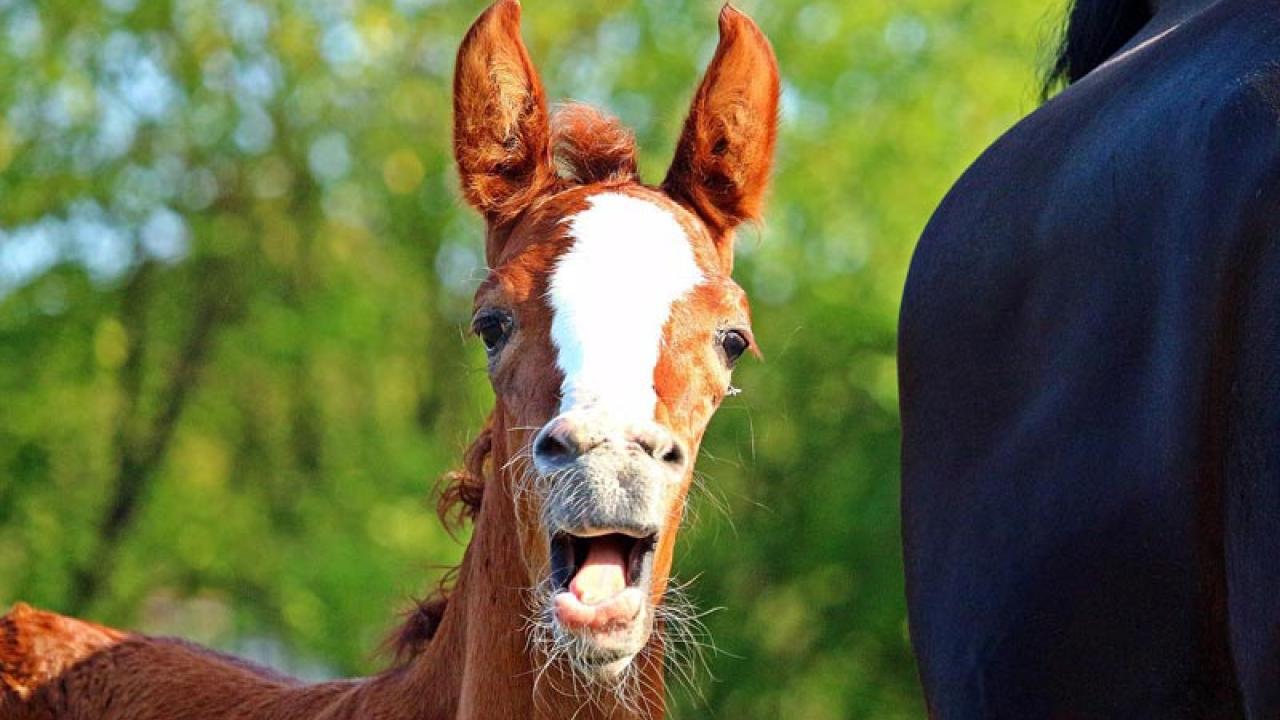
Study identifies possible factor in newborn foals being prone to lung infections
This article originally appeared on Horse Talk.
Newborn foals appear to have a lower relative abundance of immune-related proteins in their lung lavage fluid than older foals and adult horses, researchers report.
This was particularly the case for proteins associated with antibacterial function.
The lower relative abundance of immune-related proteins in the lavage fluid of newborns may contribute to their susceptibility to lung infections, Alejandra Rivolta and her fellow researchers reported in the journal PLOS ONE.
“Our study provides the bases for further evaluation of the role some of these single proteins may have in the protection of the neonatal lung,” they said.
A bronchoalveolar lavage involves introducing sterile saline into part of the lung via a tube and then sucking it out. The collected fluid contains cells and materials from the lung that can then be identified and analyzed.
The US-based study team said newborn foals are known to have a different cellular composition in their lavage fluid when compared to older foals and adult horses. However, little is known about the non-cellular components.
The study team sought to determine the proteomic composition within lavage fluid in neonatal horses and to compare it to that of older foals and adult horses.
Lavage samples were collected for analysis from seven newborns (less than one week of age), four foals aged five to seven weeks, and six adult horses. All were Thoroughbreds and belonged to the University of Kentucky research herd.
The proteins present and their relative abundance were identified using mass spectrometry. The results between groups were then compared.
A total of 704 proteins were identified and classified. Of these, 332 were related to the immune system in newborns, foals, and adult horses.
The most frequent molecular functions identified were binding and catalytic activity and the most common biological processes were cellular process, metabolic process, and biological regulation.
“There was a significant difference in the proteome of neonates [newborns] when compared to foals and to adult horses,” they reported. The newborns had less relative expression of many immune-related proteins.
The older foals, even though only a few weeks older, had similar immune-related protein abundance to the adult horses.
The authors said they believe their study represents the first report of equine newborn lavage proteomics and reveals marked differences from older horses.
The researchers said their study had several limitations. Only a small number of horses was included in each group and all the adult horses were females. All horses were Thoroughbreds and were housed in the same environment.
Additional work is needed to be able to expand the findings to other breeds.
The study team comprised Rivolta, Adina Bujold, Joseph Navelski and Macarena Sanz, all with Washington State University; Phillip Wilmarth, with Oregon Health and Science University; Brett Phinney, with the University of California, Davis; and David Horohov, with the University of Kentucky.
Media Resources
Rivolta AA, Bujold AR, Wilmarth PA, Phinney BS, Navelski JP, Horohov DW, et al. (2023) Comparison of the broncoalveolar lavage fluid proteomics between foals and adult horses. PLoS ONE 18(9): e0290778. https://doi.org/10.1371/journal.pone.0290778
